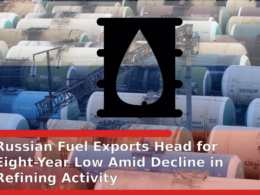European diplomats are preparing to strengthen sanctions against Russia, anticipating that the return of former US President Donald Trump could undermine efforts to isolate Moscow. Negotiations among EU officials and envoys are focused on several initiatives aimed at ensuring the sustainability of European sanctions for a longer period, reinforcing them through stricter enforcement, even if Washington changes its course.
Possible steps include “comprehensive” provisions to detect and stop suspicious shipments heading to Russia, as well as broader restrictions on oil transportation. This provision would allow customs officials to detain cargoes if the destination seems illogical, such as crossing the border into Russia to reach Central Asian countries. There is also a discussion about changing the requirement that the freezing of Russian central bank assets, the largest Western sanction against Moscow, must be renewed by European capitals every six months.
Any easing from Washington would put Europe in a difficult position, as it is the United States that has broad powers to punish sanction violators worldwide and primarily oversees compliance with the rules. The European Union is now trying to find its means to enhance enforcement and tighten restrictions on Russia. Several countries are also discussing restrictions on the “mislabeling” of goods destined for Russia and are striving for more accurate descriptions.
The Baltic states bordering Russia have long complained that exporters use EU customs codes to obfuscate their shipments. It is expected that at least 45 ships will be added to the EU sanctions list as Western allies seek to tighten the price cap on Russian oil set by the “G7”. The EU also wants to expand the use of the “no Russia” provision in the next round of sanctions.
This will require EU companies’ subsidiaries in third countries to prohibit the re-export of certain goods to Russia, including those with dual-use for military purposes, as well as ammunition and firearms. Several countries, along with the European Commission, intend to further restrict the import of other energy resources from Russia, including the import of liquefied natural gas (LNG), which has increased in recent months.








